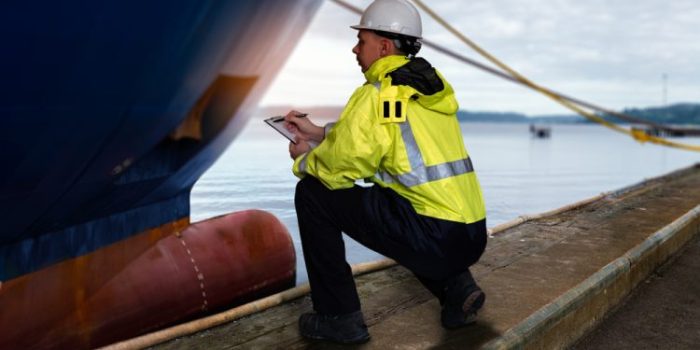

Organizational Impact
Organizations dealing with the export of liquid cargo benefit tremendously when their leaders possess a high degree of the inner competencies gained in this seminar. They will be better able to understand the practical, safety and legal aspects of the industry and people behind it. They will access in-depth thinking potential to make decisions and solve problems more effectively.
- Understanding of the Export Marine Terminal and key players
- Improving interface management between departments dealing with the oil export process
- Minimizing number of mistakes when working with various stakeholders
- Speeding up processing of the documentation
- Serving clients more efficiently
- Enhancing human relations within the organization
- Improving vision of future opportunities for development
- Developing necessary employee’s skills
- Saving costs
Upon the successful completion of this course, each participant will get knowledge about:
• Apply and gain an advanced knowledge on export marine/pipeline terminals management, operation and safety with international standard
• Discuss the background, significance and types of export marine pipeline terminals
• Review the international standards and regulatory frameworks
• Discuss the structure and components of export marine terminals and pipelines including the marine/pipeline terminal industry
• Apply procedures and checklist of terminal/pipeline operation as well as maintain and inspect terminal equipment and pipelines
• Carryout pipeline pressure management, flow rate control and terminal logistics covering scheduling, cargo handling, and storage
• Implement safety measures during operations, quick response and remedial actions during emergency procedures
• Identify the role and responsibilities of export terminal/pipeline managers and build a competent team and training
• Apply communication and coordination, management of terminal and pipeline services and contract and lease management
• Identify and assess risks in terminal/pipeline operations apply safety standards and compliance and implement safety management systems
• Carryout accident prevention strategies, safety audits, emergency response and crisis management
• Recognize the environmental impact of terminal/pipeline operations and apply effluent management and pollution control
• Employ energy efficiency, carbon footprint reduction and implemention of sustainable practices in terminal pipeline operations
Personal Impact
This training course teaches the competencies that enable leaders to:
- An enhance knowledge of the Export terminals and key players
- Appreciate of macro and micro-economic issues affecting the export maritime terminal sector
- Practically understand of how to apply their knowledge to their everyday work environment
- Which tools provide the best returns in the sector
- Integrate strategic knowledge and operations with other forms of management practice within the sector
- Deal with a crisis
- Understand of marine terminals and pipelines and how to deal with damages
- Know of the legal framework
- Understand of marine environment law and its application
- What to look at the documentation?
- Know of the resources available
- Predict risks and possible constraints
This training seminar will greatly benefit all individuals who wish to improve their leadership skills and develop their personal power and effectiveness:
• Managers
• Team Leaders
• Supervisors
• Professionals
• Technical Staff
• Superintendents
• Operators
• Officers
• Procurement professionals
• Suppliers
• Planners
• Inventory professionals
Introduction and Operation of the Marine Pipeline Terminals
• Types of Marine Terminals & Pipelines: An Overview
• Structure & Components of Marine Terminals & Pipelines
• Terminal/Pipeline Operation: Procedures & Checklists
• Maintenance & Inspection of Terminal Equipment & Pipelines
• Pipeline Pressure Management & Flow Rate Control
• Terminal Logistics: Scheduling, Cargo Handling & Storage
• Safety Measures During Operations
• Emergency Procedures: Quick Response & Remedial Actions
Terminal and Pipeline Management
• Lab and Third Party Inspectors and Surveyors
• Role & Responsibilities of Terminal/Pipeline Managers
• Staffing & Training: Building a Competent Team
• Communication & Coordination: Inter & Intra Organizational Aspects
• Management of Terminal Services: Berthing, Mooring & Cargo Operations
• Management of Pipeline Services: Pumping, Metering & Monitoring
• Contract & Lease Management: Legal & Commercial Aspects
Safety & Risk Management
• Understanding Risk: Identifying & Assessing Risks in Terminal/Pipeline Operations
• Safety Standards & Compliance: International & National Regulations
• Implementing Safety Management Systems
• Accident Prevention Strategies & Safety Audits
• Emergency Response & Crisis Management
Environmental Impact and Sustainability
• Environmental Impact of Terminal/Pipeline Operations
• Efficient Management & Pollution Control
• Energy Efficiency & Carbon Footprint Reduction
• Implementation of Sustainable Practices in Terminal/Pipeline Operations
• The Future of Terminals & Pipelines: Innovations & Trends
CDGA attendance certificate will be issued to all attendees completing minimum of 80% of the total course duration.
| Code | Date | Venue | Fees | Register |
|---|---|---|---|---|
| MAR110-01 | 02-03-2026 | Johannesburg | USD 6950 | |
| MAR110-02 | 08-06-2026 | Istanbul | USD 5950 | |
| MAR110-03 | 13-09-2026 | Dubai | USD 5450 | |
| MAR110-04 | 13-12-2026 | Jeddah | USD 5450 |
Providing services with a high quality that are satisfying the requirements
Appling the specifications and legalizations to ensure the quality of service.
Best utilization of resources for continually improving the business activities.
CDGA keen to selects highly technical instructors based on professional field experience
Since CDGA was established, it considered a training partner for world class oil & gas institution
3012, Block 3, 30 Euro Business Park, Little Island, Co. Cork, T45 V220, Ireland
Mon to Fri 09:00 AM to 06:00 PM
Contact Us anytime!
Request Info